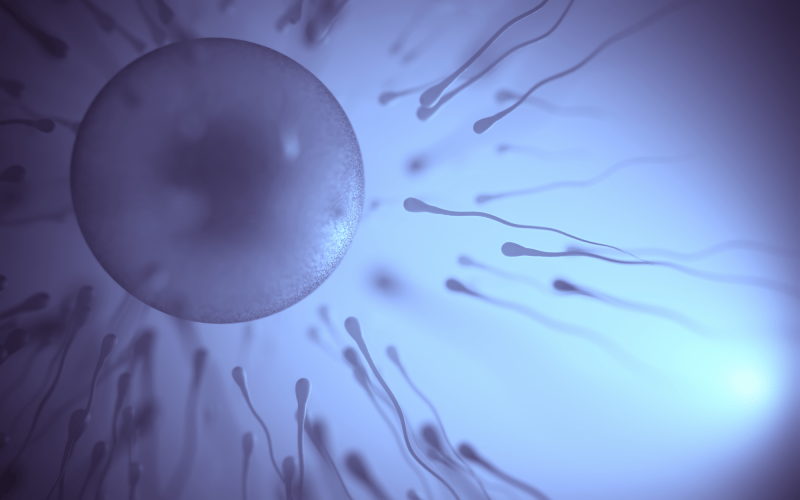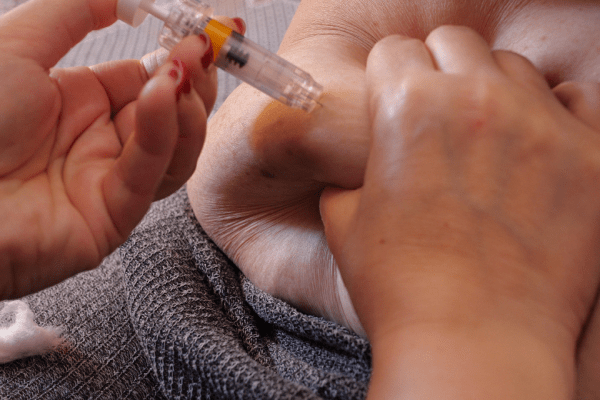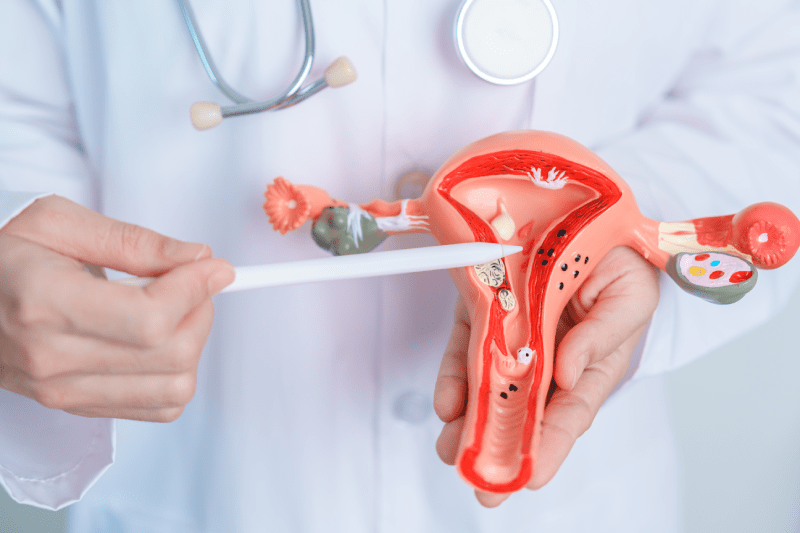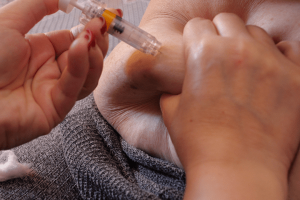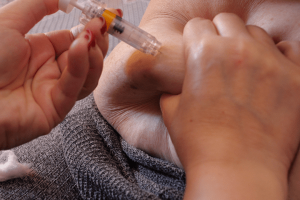Sperm Donation Prices in Cyprus – IVF Treatment with Sperm Donation in Cyprus
What is Sperm Donation in IVF Treatment?
Sperm donation is a process in which a man donates his sperm to help a woman become pregnant. In the context of in vitro fertilization (IVF) treatment, sperm donation is often used when the male partner has fertility issues or when a woman is undergoing treatment on her own without a male partner.
In IVF treatment, a woman’s eggs are extracted and fertilized with the donated sperm in a laboratory. The resulting embryos are then transferred back into the woman’s uterus in the hope of achieving a successful pregnancy. The use of donated sperm in IVF treatment has become increasingly common in recent years and has helped many couples and single women overcome infertility issues and achieve their dream of starting a family.
Sperm donation typically involves a rigorous screening process to ensure that the donor is healthy and free from any genetic or infectious diseases. Donors are also required to provide detailed information about their medical history, family history, lifestyle habits, and personal characteristics. This information is used to determine the donor’s eligibility and to select a suitable match for the recipient.
Once a suitable donor has been selected, the sperm donation process can begin. Donors are usually asked to abstain from sexual activity for several days before the donation to ensure that their sperm count is high. The donation process itself usually involves masturbation into a sterile cup, which is then stored in a laboratory until it is needed for IVF treatment.
IVF treatment using donated sperm is a safe and effective way of overcoming fertility issues and achieving pregnancy. However, it is important for both donors and recipients to fully understand the potential risks and implications of the process before making any decisions. Donors should be aware of the long-term impact of their decision and the fact that they may be contacted by any resulting offspring when they reach adulthood.
In summary, sperm donation is an essential part of IVF treatment for many couples and single women struggling with infertility issues. With careful screening and selection, it can provide a safe and effective way of achieving pregnancy and starting a family.
How Is Sperm Donation Performed in IVF Treatment?
Sperm donation is an essential component of in vitro fertilization (IVF) treatment. It involves the collection of healthy and viable sperm from a donor that is then used to fertilize a woman’s eggs in a laboratory. This process has helped many couples and individuals struggling with infertility issues to achieve their goal of starting a family. In this article, we will discuss how sperm donation is performed in IVF treatment.
- Selection of Donor:
The first step in sperm donation for IVF treatment is the selection of a suitable donor. Donors are usually healthy men who are between the ages of 18 and 40 years old. They undergo a rigorous screening process to ensure that they are free from infectious diseases, genetic abnormalities, and any other conditions that could affect their sperm. - Semen Collection:
Once a suitable donor has been identified, the semen collection process can begin. Donors are generally asked to abstain from sexual activity, including masturbation, for a period of three to five days before the collection. During the collection, the donor will be provided with a sterile container and asked to masturbate into it. The semen sample is then transported to the laboratory. - Semen Analysis:
In the laboratory, the semen sample is analyzed to determine the quantity, quality, and motility of the sperm. The sample is evaluated for factors such as volume, pH level, concentration, and morphology. The sperm are also tested for their ability to swim, which is a critical factor in determining their suitability for IVF treatment. - Semen Processing:
After the semen sample has been analyzed, it undergoes a process known as semen processing. This involves the separation of the sperm from the other components of the semen, such as the seminal fluid and debris. The most common method of semen processing is called the “swim-up” technique, in which the sperm are allowed to swim up into a new medium, leaving behind the other components. - Sperm Freezing:
Once the sperm have been processed, they can be frozen and stored until they are needed for IVF treatment. The sperm can be kept frozen for several years, which allows for multiple IVF treatment cycles if necessary. - IVF Treatment:
When a woman is ready for IVF treatment, the frozen sperm sample is thawed and prepared for use. The sperm are then combined with the woman’s eggs in a laboratory dish, and fertilization occurs. The resulting embryos are then transferred into the woman’s uterus, and the development of a pregnancy can begin.
In conclusion, sperm donation is a critical component of IVF treatment, and it involves the careful selection, collection, and processing of viable sperm from a donor. This process has helped many couples and individuals struggling with infertility issues to achieve their dream of starting a family. With careful screening and monitoring, sperm donation in IVF treatment can provide a safe and effective solution for overcoming fertility issues.

Who Is Suitable For Sperm Donation?
- Male Partner with Fertility Issues:
One of the most common reasons for using donor sperm in IVF treatment is when the male partner has fertility issues. This could include a low sperm count, poor sperm motility, or other sperm abnormalities that make fertilization difficult or impossible. - Single Women or Same-Sex Couples:
In cases where a woman is undergoing IVF treatment without a male partner or if a same-sex couple is looking to start a family together, donor sperm may be used to fertilize the eggs. - Couples with Genetic Abnormalities:
In some cases, couples may have a genetic abnormality that they do not want to pass on to their children. In these cases, donor sperm may be used to reduce the risk of inherited conditions. - Women with Reproductive Issues:
Women with reproductive issues such as premature ovarian failure or other conditions that affect egg quality or production may also be suitable candidates for donor sperm. - Unexplained Infertility:
In some cases, the cause of infertility may be unknown. In these cases, donor sperm may be used as a means of overcoming infertility and achieving a successful pregnancy.
It is important to note that the decision to use donor sperm in IVF treatment is a personal one and should be made in consultation with a healthcare professional. Donor sperm is rigorously screened to ensure that it is healthy and free from infectious diseases, and the anonymity of the donor is maintained throughout the process.
Sperm Donation Success Rate in IVF Treatment
The success of sperm donation in IVF treatment depends on several factors, including the age of the woman, the quality of the donated sperm, and the expertise of the fertility clinic. The overall success rate of IVF treatment using donated sperm ranges from 30% to 60%, although this can vary significantly depending on individual circumstances.
- Age of the Woman:
One of the critical factors that determine the success rate of sperm donation in IVF treatment is the age of the woman. The success of IVF treatment tends to decline as women get older, with the best chances of success in women under 35 years old. - Quality of Donated Sperm:
The quality of the donated sperm also plays a significant role in IVF treatment success. The donated sperm must be healthy, viable, and have good motility. The sperm undergoes rigorous screening to ensure that they are free from any genetic or infectious diseases that could affect the health of the resulting child. - Expertise of Fertility Clinic:
The expertise of the fertility clinic is also crucial in the success of sperm donation in IVF treatment. The clinic must have experienced and skilled technicians who can handle and process the sperm effectively to maximize the chances of successful fertilization. - Other Factors:
Other factors that can impact the success rate of sperm donation in IVF treatment include the number of eggs retrieved, the quality of the embryos produced, and the patient’s overall health and fertility.
In conclusion, sperm donation has become an essential component of IVF treatment, and it is a safe and effective solution for individuals and couples struggling with fertility issues. The success rate of IVF treatment using donated sperm can vary widely depending on individual circumstances, but with the right screening, processing, and expertise, it can help many couples and individuals achieve the dream of starting a family.

The Best Place for Sperm Donation in IVF Treatment – Cyprus Sperm Donation
Sperm donation has become an essential component of in vitro fertilization (IVF) treatments, and many clinics around the world provide this service. However, Cyprus has emerged as one of the best places for sperm donation in IVF treatment. Cyprus sperm donation offers a high level of medical expertise, cutting-edge technology, and affordable pricing, making it an attractive option for couples and individuals struggling with infertility issues. In this article, we will discuss why Cyprus is one of the best places for sperm donation in IVF treatment.
Medical Expertise:
Cyprus has a long-standing reputation for medical expertise, and this extends to the field of IVF treatment. Many of the country’s fertility clinics have highly trained and experienced medical staff who are experts in the field of sperm donation and IVF treatment. This expertise is reflected in the high success rates and positive patient outcomes of many of these clinics.
Cutting-Edge Technology:
Cyprus is also at the forefront of using cutting-edge technology in IVF treatment. Many clinics in the country have state-of-the-art laboratories and equipment that allow for advanced sperm donation techniques, such as intracytoplasmic sperm injection (ICSI), which can help overcome male factor infertility.
Affordable Pricing:
One of the most significant advantages of Cyprus sperm donation is its affordable pricing. Compared to other countries, such as the United States, the United Kingdom, or Australia, Cyprus offers significantly lower prices for sperm donation and IVF treatment. This affordability has made Cyprus a popular destination for medical tourism, with couples and individuals travelling from around the world to access its services.
Anonymity and Confidentiality:
Many clinics in Cyprus provide anonymity and confidentiality for sperm donors, which can be vital for many patients. This anonymity ensures that the donor’s identity remains secret, and the donor’s DNA is kept confidential, providing an extra layer of protection and privacy for both the donor and the recipient families.
In conclusion, Cyprus has emerged as one of the best places for sperm donation in IVF treatment, offering a high level of medical expertise, cutting-edge technology, affordable pricing, and anonymity and confidentiality for donors. The country’s reputation for IVF treatment and its commitment to the highest levels of patient care have made it a popular destination for those seeking fertility treatments. With everything that Cyprus offers in terms of quality and affordability, it is clear why it is one of the best places for sperm donation in IVF treatment.

Cyprus Sperm Donation Prices 2023
The cost of IVF treatment and sperm donation in Cyprus can vary depending on the clinic, the specific services provided, and the individual patient’s needs. However, Cyprus offers significantly lower prices than many other countries, while still maintaining a high level of medical expertise and patient care.
On average, the cost of sperm donation in Cyprus ranges from €4,500 to 7,500€ which is significantly lower than the cost in other countries such as the United States, the United Kingdom, or Australia. This price includes the cost of sperm retrieval, processing, screening, and storage, as well as the clinic’s fees for IVF treatment.
The cost of IVF treatment in Cyprus varies depending on factors such as the patient’s age, the number of treatment cycles required, and any additional procedures, such as ICSI or embryo freezing. On average, the cost of IVF treatment in Cyprus ranges from €4,000 to €6,000, excluding the cost of medications.
Overall, the affordability of IVF treatment and sperm donation in Cyprus has made it a popular destination for medical tourism. Patients from around the world travel to Cyprus to access high-quality medical care at significantly lower prices than their country of origin. With its cutting-edge technology, experienced medical staff, and commitment to patient care, Cyprus is an attractive option for those seeking affordable and effective IVF treatment and sperm donation services. If you want to get more detailed information about Cyprus IVF or sperm donation prices in Cyprus, you can contact us.
